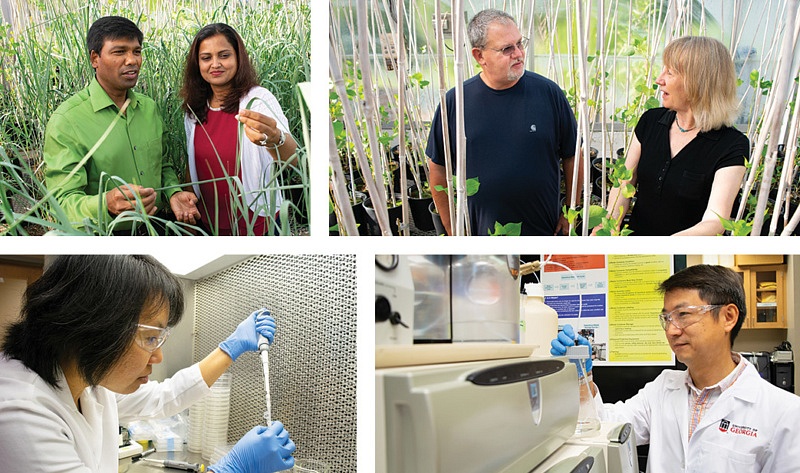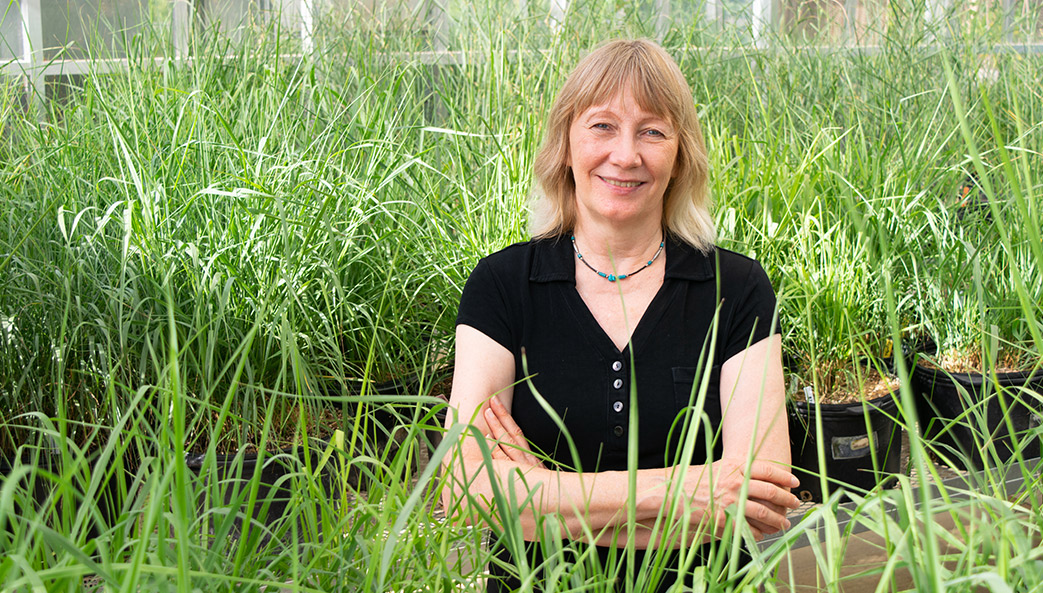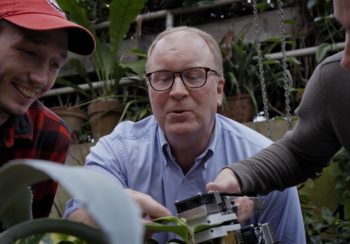Manipulation of the identical gene in both poplar trees and switchgrass led to better-growing plants that can be more efficiently converted to biofuels, according to a research team led by UGA.
In a paper published in Nature Biotechnology, the researchers report that reducing the activity of a specific gene called GAUT4 leads to lower levels of pectin, a component of plant cell walls responsible for their resistance to deconstruction. Often, due to the composition of plant cell walls, plant material is not efficiently broken down or deconstructed to the basic sugars that are converted to biofuels.

“It’s expensive to produce biofuels,” says lead author Debra Mohnen, a member of UGA’s Complex Carbohydrate Research Center and professor of biochemistry and molecular biology in the Franklin College of Arts and Sciences. “It takes a lot of energy to break open plant biomass, with a pretreatment process involving chemicals, high temperatures and enzymes that break complex polymers into smaller sugars that can be turned into fuels. Even relatively modest increases in the efficiency of deconstruction can be important on an industrial scale.”
Mohnen and a team of researchers at six institutions found that reducing the expression of GAUT4 in poplar and switchgrass led to a 70 percent reduction in pectin content and produced a 15 percent increase in sugar release. Unexpectedly, it also led to an increase in the growth of both plant species.
“We increased the amount of biomass yield of field-grown switchgrass sixfold, and we increased the amount of ethanol yield sevenfold per plant,” Mohnen says of the added benefit. “We also observed increased growth and sugar release in poplar.”
The increase in plant yield and sugar release—demonstrated in both greenhouse and field trials for switchgrass—bodes well for creating biofuels, an important alternative to fossil fuels. Switchgrass and poplar previously were identified by the U.S. Department of Energy as two biofuel feedstocks that can be grown in areas that would not profitably support food crops.
The team also produced the first evidence that a reduction in GAUT4 specifically reduces two of the three types of pectin in plants. The influence of pectin on biofuel production largely has been ignored, according to the paper’s first author, Ajaya Biswal, assistant research scientist at the CCRC. In research that began more than a decade ago, Biswal found GAUT4 expressed in poplar and then targeted the gene in both poplar and switchgrass.
“We tend to forget that understanding the mechanics and wall structure of a plant like switchgrass is a long journey,” he says. “Mother Nature took millions of years to build it, and fully exploring it in 10 years is impossible—we still have so much more to learn.”
This story appeared in the fall 2018 issue of Research Magazine. The original press release is available at https://news.uga.edu/gene-improves-plant-growth-conversion-biofuels/.






